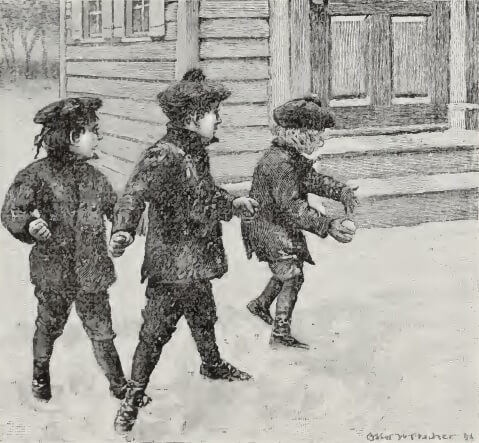 McGuffey's Third Eclectic Reader by William Holmes McGuffey
McGuffey's Third Reader
McGuffey's Third Eclectic Reader by William Holmes McGuffey
McGuffey's Third Reader


 McGuffey's Third Eclectic Reader by William Holmes McGuffey
McGuffey's Third Reader
McGuffey's Third Eclectic Reader by William Holmes McGuffey
McGuffey's Third Reader

Step 1: Study the New Words
Step 2: Examine the Lesson Image
Describe the image, its setting, and its characters.
Step 3: Read the Lesson Passage